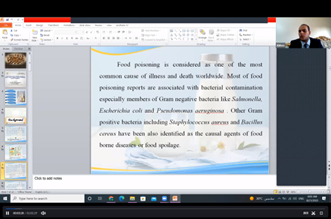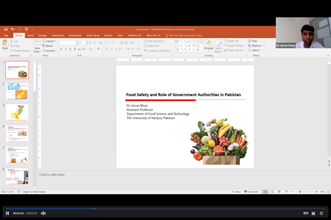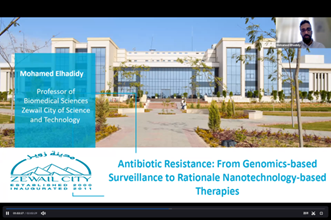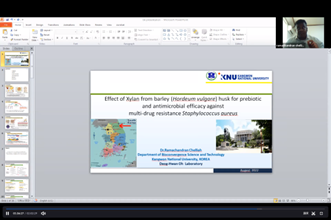
Date:2022-09-26 | Visitcount:16
Due to COVID-9 pandemic, the 7th Postgraduate Summer International Workshop was held entirely online. This symposium was organized by Zhejiang University to promote academic exchange and cultural interaction between postgraduate students and international experts in food safety. The goal of this symposium was to guide and stimulate students’ enthusiasm for scientific research, keep students updated with the most recent research trends, and expand students’ international connections.
The 7th Postgraduate Summer International Workshop with the theme of ‘food safety in the context of the belt and road initiative’ was held from August 20th to August 21th, 2022. Through a series of online conferences, we had the opportunity to have online face-to-face exchange with researchers from many countries and to promote cooperation with universities and research institutions overseas.
The first presentation in the workshop was given by professor Shuai Wei from Guangdong Ocean University, China. Prof. Wei gave a presentation on the “Effect of non-thermal processing on allergenicity of shrimp tropomyosin”. Prof. Wei demonstrated that dense phase carbon dioxide, a non-thermal processing method, reduced the content of tropomyosin in shrimp. Professor Khalid Sallam from Mansoura University, Egypt, reported about the antimicrobial residues in sheep meat and offals in Kuwait, emphasizing that antimicrobial residues are a threat and can remain in the food system. Professor Qingli Dong from University of Shanghai for Science and Technology, China, gave a presentation about the progress of Listeria monocytogenes risk modelling and concluded that Bayesian approach provides benefits for quantitative microbial risk assessment. Ricardo Wu, doctoral candidate from Zhejiang University, China, gave a presentation about the cross-protection response of foodborne pathogens.
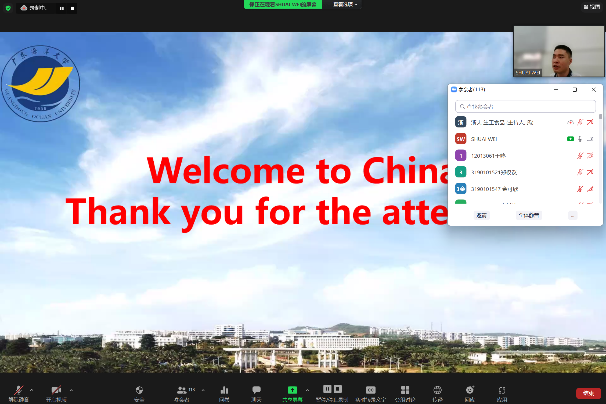
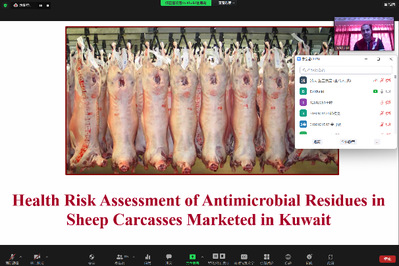
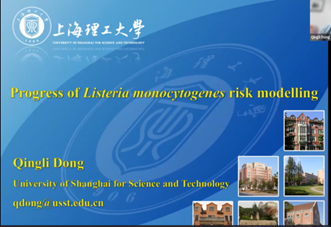
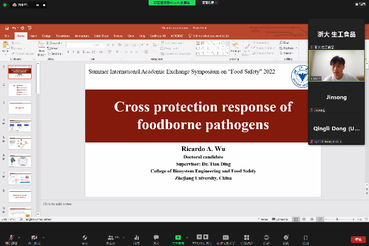
On the second of the workshop, professor Mahmoud Elafify from Mansoura University, Egypt, gave a presentation about a promising strategy to control foodborne pathogens using D-tryptophan. Professor Imran Khan from the University of Haripur, Pakistan, gave a presentation about food safety and role of government authorities in Pakistan. Professor Mohamed Elhadidy from Zewail City of Science and Technology, Egypt, gave a presentation about antibiotic resistance from genomics-based surveillance to rationale nanotechnology-based therapies. The workshop concluded with the presentation of Professor Ramachandran Chelliah from Kangwon University, Korea. His presentation was about the effect of xylan for prebiotic and antimicrobial efficacy against multi-drug resistance Staphylococcus aureus. All sides expressed their hope to strengthen the cooperation in the field of food science and nutrition in the future.
